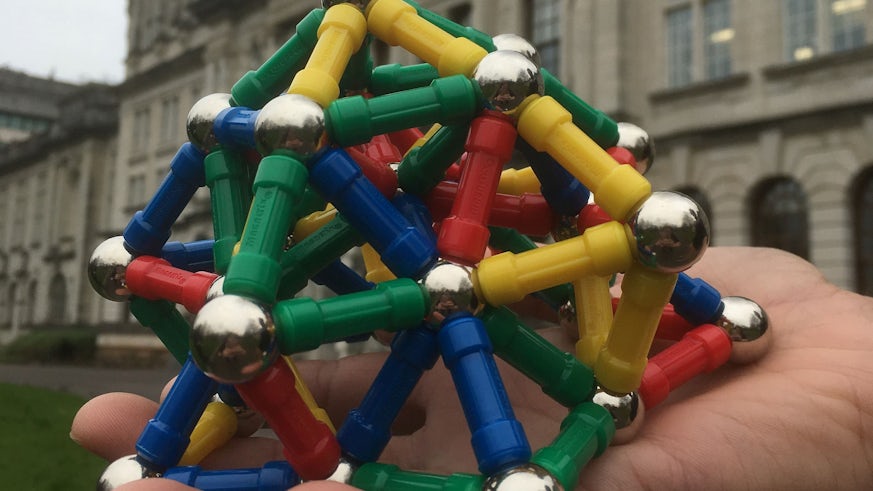Molecular sponges the next big thing?
21 March 2017

Chemists from Cardiff University, the University of Liverpool and Manchester Metropolitan University have been invited to showcase their research on self-assembling building blocks at ‘The Next Big Thing’ event at the Science Museum in London.
Dr. Timothy Easun from Cardiff University and Dr. Anna Slater from the University of Liverpool have combined their research interests to design and create tiny molecular building blocks that can self-assemble. These building blocks are unique in that they can assemble themselves into specific forms when combined, whilst retaining pores that can open and close like a sponge in response to light. These molecular building blocks can be used to store and release important gases like hydrogen and carbon dioxide, increasing fuel storage efficiency in next-generation vehicles, and to purify petrochemicals used to make much of the modern world, including plastics, paints, fibres and fertilizers.

The ‘No Assembly Required’ exhibit will demonstrate how chemists are engineering materials that know how to put themselves together and the ways in which these building blocks will benefit the public. It will include interactive models and quizzes to explain the science behind the self-assembling molecules. Audiences will be challenged to be the fastest to assemble a 3D molecular framework model or build the tallest molecular cage tower, with prizes awarded to the winners at the end of the event. The exhibit will also feature DIY scientific poetry lead by Dr. Sam Illingworth, Senior Lecturer in Science Communication from Manchester Metropolitan University.
'The Next Big Thing' will take place on the 29th March 2017 as part of the ‘Science Museum Lates’ series of free monthly events highlighting current scientific research and its applications to an adult audience in an entertaining way.
If you would like to find out more about Science Museum Lates, please visit their website.